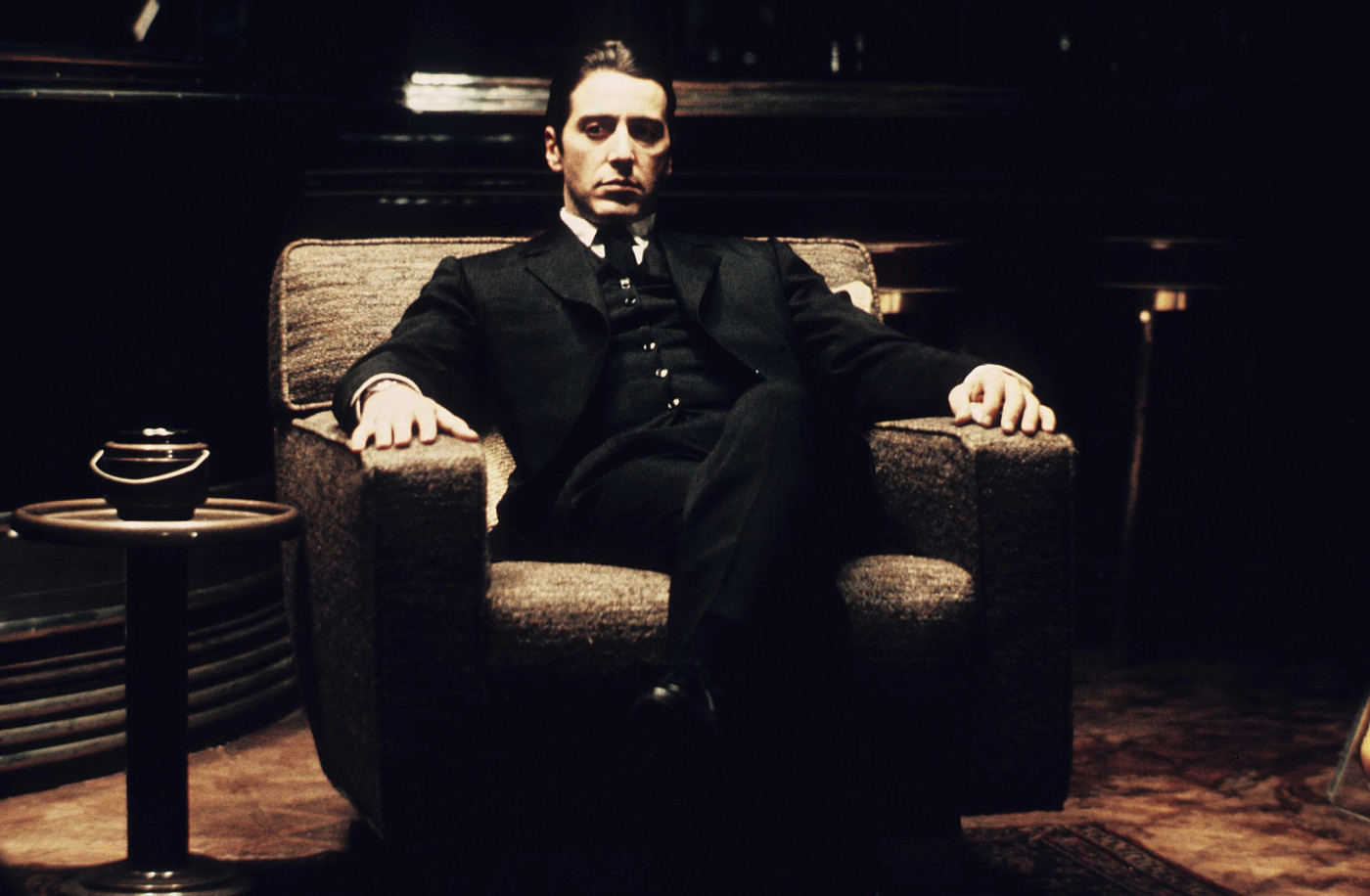
Out of the Past 2015 / The Godfather: Part II / USA 1974
In terms of the many positive reviews and its three Academy Awards, The Godfather: Part II outstripped the first installment of this magnificent mafia family saga. Once again, Coppola succeeded masterfully in unifying several complicated storylines, and despite a marked emphasis on action he turns in a penetrating study of numerous distinct characters. One standout is black sheep Fredo Corleone played by the congenial John Cazale.


It’s already the 1950s when, after Vito Corleone’s death, his son Michael becomes godfather, and in addition to the treachery in his own family, he must stand against hardened competitors from the underworld, as well as the heightened interest of the increasingly powerful organs of justice. Thus the young man, who long refused to act the tough boss, inevitably becomes an even more ruthless master than his father. But Michael isn’t just a killing machine. Played by the mesmeric Al Pacino, sorrow is etched in the lines of his face as if he knew from the start that, after all the victories that toppled his adversaries, a great loneliness would await him in the end. In a subplot flashing back to 1920s New York, Robert De Niro excels as a young Vito who is building his position from the ground up. Coppola has everything perfectly under control, from imposing, high-profile situations in which the plot develops on several planes at once, down to minute details such as the Sicilian dialect, employed to perfection in Vito’s early scenes.
Zdena Škapová
175 min / Color, DCP
Director Francis Ford Coppola
/ Screenplay Francis Ford Coppola, Mario Puzo podle románu Kmotr / based on the novel The Godfather by Mario Puzo
/ Dir. of Photography Gordon Willis
/ Music Nino Rota
/ Editor Peter Zinner, Barry Malkin, Richard Marks
/ Art Director Angelo P. Graham
/ Producer Francis Ford Coppola
/ Production Coppola Company
/ Cast Al Pacino, John Cazale, Robert Duvall, Diane Keaton, Robert De Niro
/ Sales Park Circus Group

Francis Ford Coppola (b. 1939, Detroit) is a director, screenwriter, and producer who graduated from Hofstra University and UCLA. He is a representative of New Hollywood, the 1970s movement that fundamentally strengthened the role of the director in the moviemaking process. An Academy Award for Best Writing (Patton, 1969) got him noticed, but world renown came with The Godfather (1972), a gangster saga of epic proportions and dramatic intensity. The 1970s were a stellar time for him, with his films receiving numerous Oscar nominations (and six statuettes), in addition to Palmes d’Or at Cannes for The Conversation (1974) and Apocalypse Now (1979). Coppola mainly focuses on making big-budget movies whose spectacular staging, however, doesn’t bar him from achieving in-depth character development or curb his ambition to impart weighty ideas. His later works include The Cotton Club (1984), Dracula (1992), and The Rainmaker (1997).
Park Circus Group
Spaces Charing Cross, Tay House, 300 Bath Street, G2 4JR, Glasgow
United Kingdom
Phone: +44 141 465 7499
E-mail: [email protected]
First-hand brews throughout the year.
Be among the first to learn about upcoming events and other news. We only send the newsletter when we have something to say.